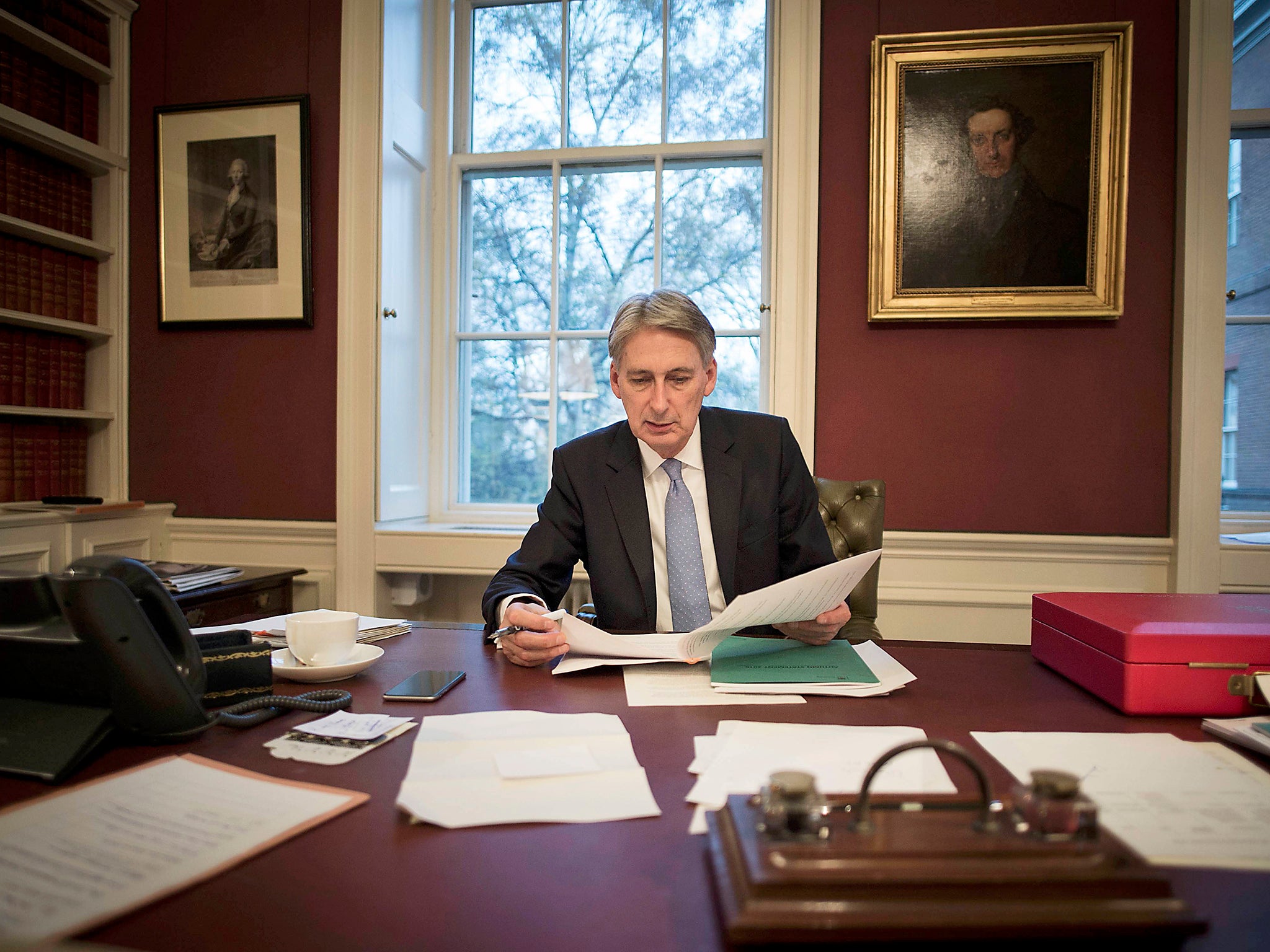Philip Hammond’s Autumn Statement failed to make post-Brexit Britain a fairer place
Hammond could have made the burden more fair by reintroducing the 50p income tax rate and adding to the tax burden of those who pay far below their fair share

Politics, as someone once said, is about the “art of the possible”. Being Chancellor is also often as not a case of simply making the best of a bad job. Such was the task facing Philip Hammond in his first major set piece event. Given the constraints he was operating under – “eye-watering” national debt in his words, and the vote for Brexit that he himself campaigned against – Mr Hammond did indeed make the best of a bad job.
When the Chancellor told the Conservative conference that “no one voted to become poorer” on 23 June, he has now been told by the Office for Budget Responsibility that that is exactly what happened. The OBR has put the cost of Brexit for the whole economy at about £40bn a year for the next five years, at least. So that, being the value of that lost output and spending power, compared with where it would have been with no Brexit vote, is precisely by how much people voted to be poorer on referendum day. The fact that the loss is “invisible” makes it no less real. Further, these early OBR estimates might prove optimistic. The case, then, for a second referendum on Brexit, now that these hard grim facts about hard Brexit are becoming known, grows stronger.
Mr Hammond knows that the challenge of Brexit could easily wreck even the relatively benign economic and social background he painted. In that sense, this was an Autumn Statement for a phoney war. For the time being, though, he was able to send his parliamentary colleagues off to lunch in surprisingly good heart. They, and rest of the nation, should still be concerned about the future.
A “bad job” the current state of the economy certainly is, thanks to a considerable self-inflicted wound from Brexit. All that said, Mr Hammond was able to deliver on the Prime Minister’s promise to help the “just about managing” families. The determination to push the threshold for paying income tax to £12,500 in the Parliament is impressive, as it is such an expensive commitment. These families will also benefit from freezing the fuel duty and, if they have savings, the new National Savings Bond. More broadly, the Chancellor made clear that he will move against the energy companies’ treatment of consumers, which should also help those who find it difficult to heat their homes.
Mr Hammond was also correct to identify poor productivity as Britain’s overarching economic challenge, though not as pressing as Brexit. He is hardly the first to do so. Two decades ago, when Gordon Brown became Chancellor he too talked an enormous amount about the problem, as did Mr Hammond’s immediate predecessor, George Osborne. With the Northern Powerhouse and the Midlands Engine, there has been investment in raising the productive capacity of the UK economy more generally, and the increased spending on 5G, on roads, on housing and on research and development will also assist. The impression, though, is that even these billons being poured into the effort to move British productivity up to Italian, let alone German, levels will be to little avail if access is lost to the European single market. Try as one might, Brexit looms large in all these debates.
Overall, then, it was a politically adept Autumn Statement, the last of its kind, that did live up to its billing. What it did not to, though, was very much to make a post-Brexit poorer Britain a fairer Britain. As shadow Chancellor John McDonnell said, Mr Hammond could have made the burden more fair by reintroducing the 50p income tax rate and adding to the tax burden of those who, in reality, pay far below their fair share. He could have done more to reverse the cruel benefits cuts imposed by his Government. He could have invested more in the national infrastructure – something that should have been started years ago.
For Mr Hammond, difficult as these days are, the signs are that the Brexit negotiations are going to be as “hellish” as some on the EU are promising. If that means even lower growth, higher debt and higher inflation, then for the Treasury and for Britain the worst is yet to come.

Join our commenting forum
Join thought-provoking conversations, follow other Independent readers and see their replies